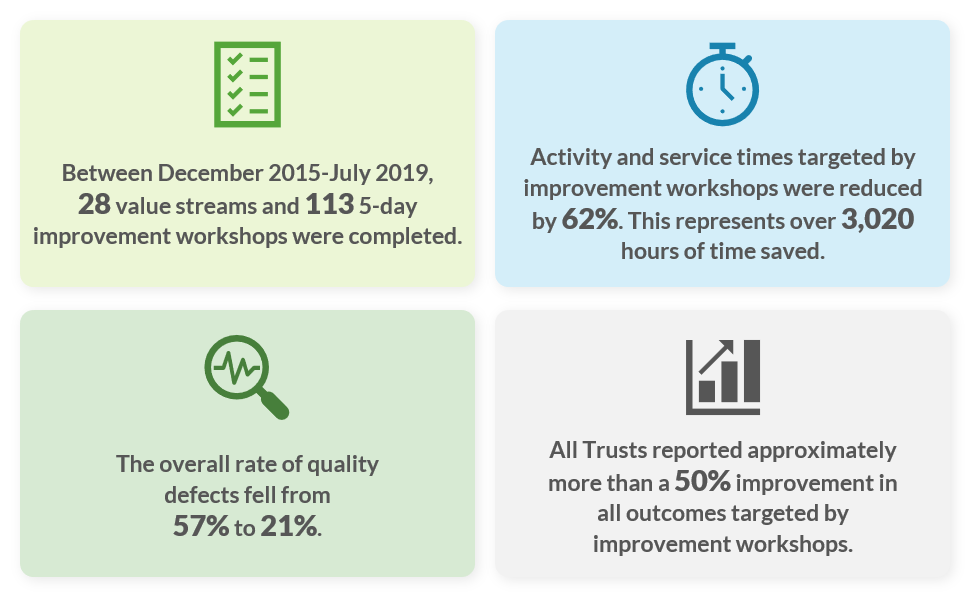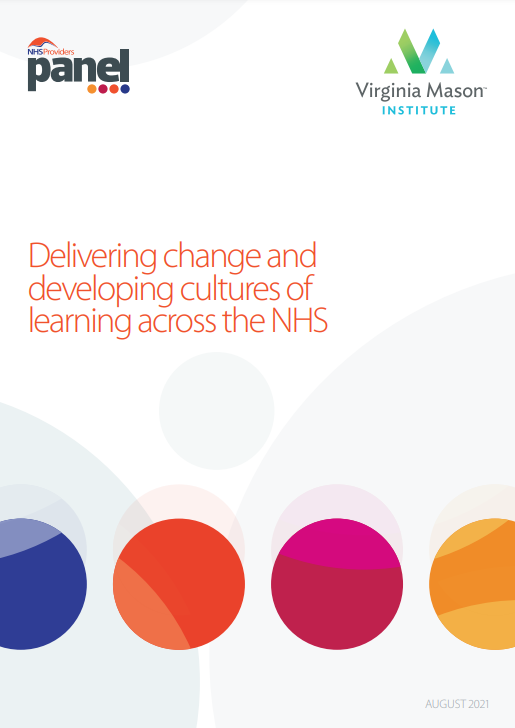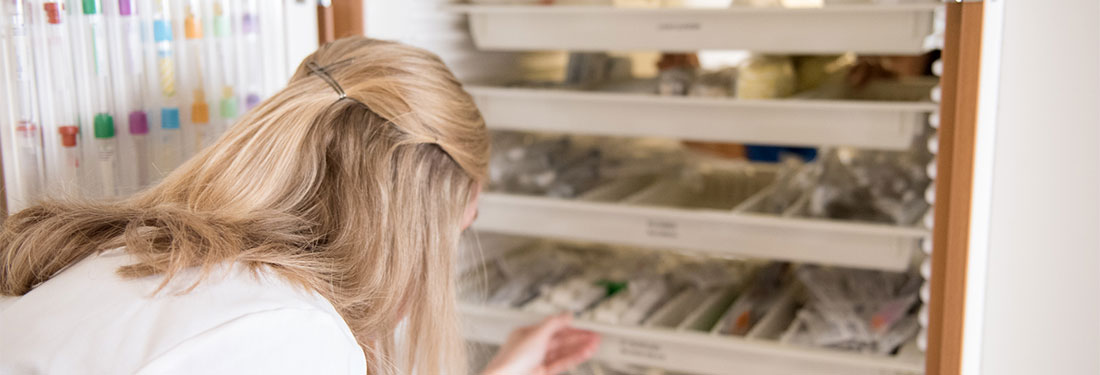4 Key Lessons in Healthcare Transformation and Quality Improvement
In 2015, Virginia Mason Institute launched a five-year partnership with five National Health Service trusts in the United Kingdom:
- Surrey and Sussex Healthcare
- Barking, Havering and Redbridge University Hospitals
- Leeds Teaching Hospitals NHS Trust (LTHT)
- University Hospitals Coventry and Warwickshire (UHCW)
- Shrewsbury and Telford Hospitals (SaTH)
The goal was to enhance the quality and safety of care provided at the trusts. Virginia Mason Institute helped each trust design and implement a unique system of management and improvement. Each system consists of guiding principles and practical tools followed by every team and team member “from board to ward.”
We’re extremely proud of what the five trusts have accomplished and want to share four lessons about transformation and quality improvement from our work together.
“The partnership we have shared with Virginia Mason over the last five years has completely transformed UHCW … This was most recently evidenced by us being the site of the first COVID vaccination in the world. One of the reasons that we were chosen was the embedding of our improvement system, which was developed in conjunction with Virginia Mason Institute and enabled the organization to ‘learn fast’ during the first wave of COVID.”
— Andy Hardy, CEO, UHCW
Progress comes from alignment and empowerment, not from control
Leaders often think that focusing on improvement requires them to tighten their grip. In fact, it requires leaders to get everyone in the organization on board with common goals, so they can unleash the power of individual teams and team members to pursue them.
Virginia Mason Institute coached the trusts in a number of ways to do this, including what we call Rapid Process Improvement Workshops (RPIWs). These are week-long incubators for process improvement, where frontline workers who do the tasks that need improving are given the time, space and resources they need to design, iterate and implement new solutions and measure results.
The trusts performed a total of 113 RPIWs over the five-year period, achieving gains of at least 50% in every single outcome they targeted for improvement. The improvements include optimized processes that save more than 3,000 hours in service time!

Cost reduction isn’t the goal — but it’s a welcome bonus
The trusts were focused on providing value to their patients. But like all organizations, they care about their financial health. We’re thrilled by the savings many of them achieved during our partnership.
LTHT, for example, turned a £100 million deficit into a £19 million surplus and achieved sustainable financial gains over the years. Another example, SaTH achieved savings of £1.8 million in 18 months through targeting the removal of waste in their supply chain, procurement processes, and their wards.
It’s a great reminder that although cutting costs isn’t the goal, it’s a common result of improvements that put the patient first.
It’s what happens after failure that is important
Each of the five trusts have embraced a culture of continuous improvement. This culture thrives on the idea that “zero defects” is possible and worth aspiring to. But it also acknowledges that we’re all human. While we aim every day to do no harm and make no mistakes, sometimes we will fall short of those goals.
One trust was reminded of this when a team came to terms with a medical error in the OR. Every organization has a story like that. But the real measure of an organization is how it responds: Do you give up on doing better, or double down on making improvements?
In this case, the organization doubled down, and used that incident to fuel its efforts to improve processes and communication in the OR. Leaders gave team members full power to “stop the line” when anything is amiss or unsafe. This is a critical way to respect workers and enable improvements, and it’s helping power better staff engagement and safety metrics at the trust today.
Better never stops
Their improvement systems helped each trust meet numerous challenges during the pandemic with vigor and speed. In fact, UHCW had set such a high standard for efficiency and reliability that they were chosen by the U.K. government to offer the first doses of the COVID-19 vaccine in the world.
The goal for the trusts going forward will be to carry the same sense of urgency and purpose into a daily pursuit of zero-defect, high-quality care for their patients.
If the last five years are any indication, we think they’re more than up to the challenge.

Delivering Change and Developing Cultures of Learning Across the NHS
Learn more about our work across the United Kingdom and beyond where we partnered with NHS trusts and more to achieve outcomes including:
- Achieving status as most efficient hospital in the NHS
- Reducing patient harm incidents
- Cost savings and improved finances
- Developing cultures of respect
- Reducing burden of work for staff
- Improving the patient experience
Your privacy is important to us.





